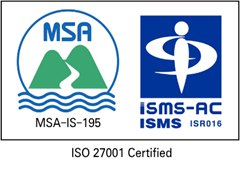Obtaining a Visa and Status of Residence
Table of Contents
How to Obtain a Japanese Visa and a Status of Residence
You must acquire a visa and a status of residence in advance in order to enter or stay in Japan. The type of visa you should apply for will differ depending on what activities you will engage in while in Japan.
*The difference between a “visa” and a “status of residence”:
A “visa” is what is affixed to a passport in advance by a Japanese overseas diplomatic office for the purposes of entering Japan. It is required for the passport-bearer to be allowed to enter the country. The “status of residence” is the status of a foreign national while staying in Japan, after entering the country. It defines the range of activities that the person can engage in while in Japan.
Foreign nationals residing in Japan are granted permission to enter the country at ports of entry based on their visa, and they are permitted to stay based on the status of residence that is granted at that time.
The term “status of residence” is unfamiliar to many non-Japanese, so elsewhere on this website, the word “visa” is used to collectively refer to both visas and statuses of residence. However, this page explains the application steps in detail, so the terms “visa” and “status of residence” will be used on this page according to their strict definitions.
Short-Term Stay visa
If you plan to stay in Japan for up to 90 days for tourism, business, visiting friends or relatives, etc., and your activities do not involve receiving remuneration (if you will only stay in Japan for a short period of time), you should apply for a Short-Term Stay visa. You can apply for a Short-Term Stay visa directly at your nearest embassy, general consulate, etc. If you live in a country or region for which visas are not required, you can enter Japan directly, without applying for a visa, provided that you do not intend to stay long term or work in Japan. For the latest information regarding which countries and regions do not require a Short-Term Stay visa, please see the Japanese Ministry of Foreign Affairs’ Exemption of Visa (Short-Term Stay) page.
Submit Application to ...
The applicant’s nearest embassy, general consulate, etc.
Work or long-term stay visa
If you do not meet the requirements for a Short-Term Stay visa, such as if you intend to earn remuneration in Japan or your stay in Japan is to be more than 90 days, you will need to acquire a work or long-term stay visa.
You must therefore first decide what type of visa is appropriate for your situation. If you intend to apply for a working visa, your place of employment in Japan must already be decided. If you intend to apply for a student visa, the educational institution you will attend in Japan must already be decided.
Documents required when applying for a visa
Submit Application to ...
The applicant’s nearest embassy, general consulate, etc.
If you wish to acquire a Japanese long-term stay visa, before visiting a Japanese embassy or general consulate to directly apply for the visa, you will need to apply for a Certificate of Eligibility (COE) from the Japanese Immigration Services Agency.
A Certificate of Eligibility is an application submitted before entering the country that certifies that a foreign national wishing to enter Japan has met the conditions required to do so, such as the activities they intend to perform in Japan corresponding with one of the statuses of residence (this does not apply to Short-Term Stay and Permanent Resident statuses of residence).
Submitting/presenting an issued Certificate of Eligibility when applying for a visa or applying to enter Japan at a Japanese diplomatic mission in another country can expedite the visa-issuing and entry permission-issuing process.
Documents required when applying for a status of residence
Application Submitter
The following parties can submit an application for a Certificate of Eligibility:
- The applicant (a foreign national wishing to enter Japan)
- An employee of an organization that intends to accept the applicant or a representative as determined by the Ordinance of the Ministry of Justice.
- An application proxy (a person who can submit the application on behalf of persons 1 or 2 above), etc., to whom any of the conditions (1) to (3) below applies.
* An application can be made by a proxy only if 1 or 2 above are residing in Japan at the time of application.
- An employee of an administrative agency that facilitates the smooth reception of foreign nationals.
- An attorney or paralegal who has notified the Director-General of the relevant Regional Immigration Services Bureau.
*The proxy will be asked to present a document proving their identity (such as a company ID card). - A legal representative of the applicant.
Submit Application to ...
Regional Immigration Services Bureau with jurisdiction over immigration (the applicant’s planned place of residence/place of the accepting organization)
Application Submission Timing and Processing Time
The standard processing time for the application, from submission to the issuing of the COE, normally takes one to three months. However, it may take longer depending on the status of the Regional Immigration Services Bureau with jurisdiction over immigration and the contents of the application. Please plan your application timing carefully to ensure that processing can be completed by the desired date.
When your COE is issued and you receive it, you can proceed with the visa application process at your nearest Japanese embassy or general consulate. Once your visa application has been screened and your visa is issued, you must enter Japan within the next three months.
